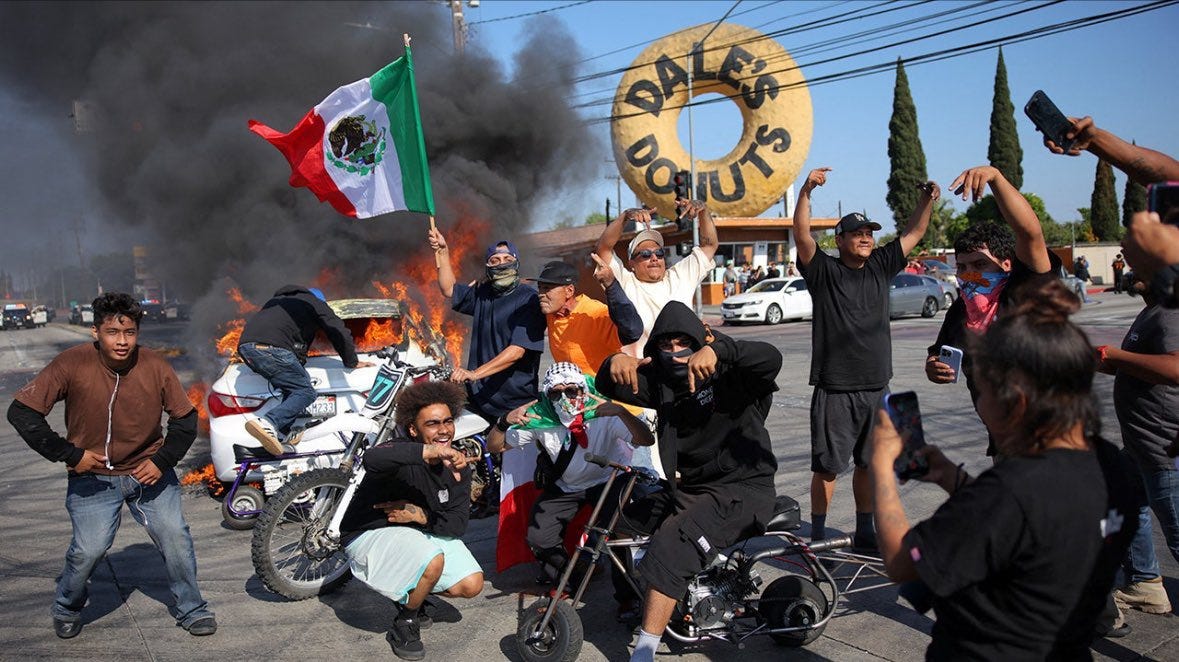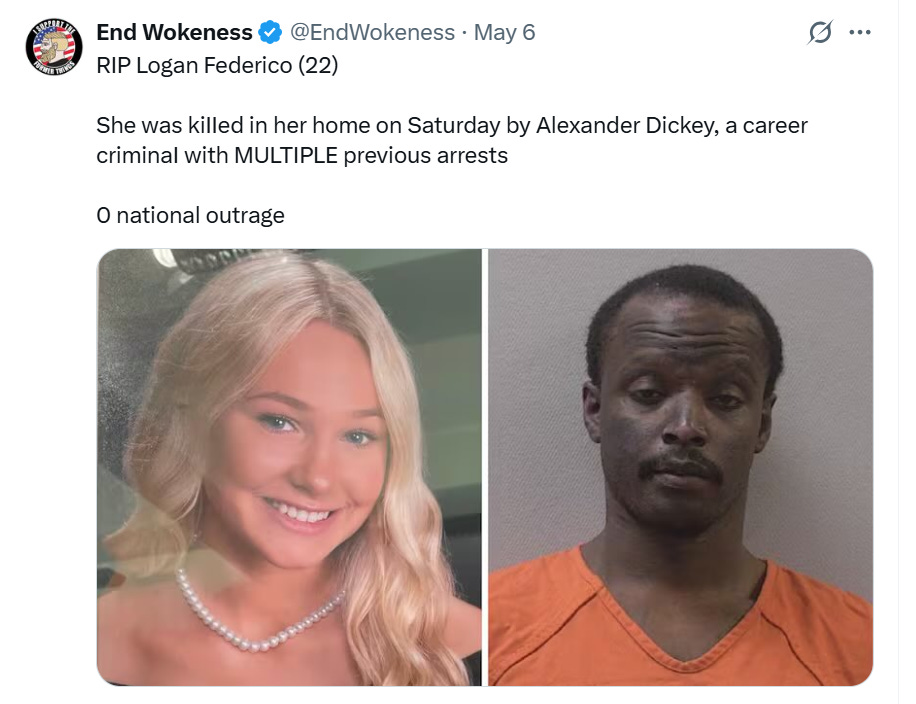Is Diversity Really a Strength?
It turns out that the proverbial melting pot… melts everything.
In recent years, we have been lectured endlessly that ‘Diversity is our Greatest Strength.’
Very rarely does this hectoring of ‘Diversity, Inclusion, Equity’ commissars ever move beyond assertion. When it does, we are told simply and starkly that organisations and territories that include ‘wider voices’, ‘different perspectives’, or even multi-ethnic ‘cuisines’, are, by definition, better.
There is, obviously, some degree of truth in the notion that diversity can be a virtue. Family life, for example, depends on gender difference for its very existence, and on differentiated roles amongst its members for its happiness.
But that is not what modern politicians et al really mean by diversity. To them, diversity is not a differentiation held together and limited by a strong sense of unity with borders. It is a mass, undifferentiated unity where there are to be no borders. Even the border between male and female is some kind of socially constructed line of oppression.
What our noble leaders therefore mean by diversity is really a completely open society in which there are no gradations of cultural identity or true freedom of association, but rather a bland human mass in which the only organising authority is a centralised nanny-state, telling you to wear a mask or die.
Instinctively we know this ideal of ‘diversity’ to be entirely unworkable on a small scale. Nobody thinks family life is easier if everybody speaks differently, thinks differently, eats differently and believes in entirely different things. And nobody thinks living in a house with no walls or doors, waiting to be enriched by a passer-by, would be a good idea.
In fact, studies have shown that within highly diverse towns and neighbourhoods, social trust erodes along with volunteerism and altruism. People, be it regrettable or not, tend to hunker down when they don’t share a common background with their neighbours. Multiculturalism is not workable.
This is not surprising really.
Nobody is as comfortable in another person’s home as they are in their own. Or as altruistic with others as they are with their own children or parents. This is natural and good.
Nobody thinks they should start a business with colleagues of completely different backgrounds and values. Or that anybody should be allowed to join the business and run it.
Yes, differentiated skills can be important, but those are limited by the identity of the organisation, as defined and restricted by its founders.
And of course, meeting new people from different places can be very enriching. Having neighbours or family members from vastly different backgrounds can be beneficial, and the virtue of hospitality to a well-meaning guest can be traced from Ancient Hellas and Israel through Christendom.
But push it too much, push it too far, and you get fragmentation and mistrust.
Furthermore, the irony is that the modern notion of diversity is entirely deconstructive of genuine diversity. If no nation or culture can retain any exclusivity, then ultimately they will disappear, leaving nothing but a grey homogeneity with no difference.
It turns out that the proverbial melting pot… melts everything.
But for some reason, we often put this common sense aside when we think politically. We forget the basics of human life. We forget the basics of biology. We forget that borderless, undifferentiated cells are literally cancer.
Sometimes, you will even hear the Bible being used as a justification for this modern doctrine of ‘sludge as diversity as greatest strength’. Specifically a passage written by St Paul:
Just as a body, though one, has many members, but all its many members form one body, so it is with Christ. For we were all baptized by one Spirit so as to form one body—whether Jews or Gentiles, slave or free—and we were all given the one Spirit to drink. Even so the body is not made up of one member but of many.
We are all one body. We need different parts of the body to function. That is, we need diversity.
The first secular application of this idea that I can think of is in the socialist-inspired play, An Inspector Calls, by JB Priestley. The play is often taught in high school English classes, and in it a ghostly inspector comes to judge a careless upper-middle-class family. He quotes St Paul to them, “We don't live alone. We are members of one body.”
But this is a gross piece of eisegesis, where we choose to interpret texts according to our own conceptual framework rather than the writer’s. Whilst nobody of good faith would dispute we should care for our neighbours or for those who work for us, or that we are always part of a wider social community, the notion that we should view ourselves as organically or intrinsically connected with anybody we come across, beyond the fact of our shared basic humanity, is a juvenile idea.
In fact, the Apostle Paul was referring specifically to a group of believers who had been baptized into an exclusive, intensely united community devoted to an explicit authority structure (‘the head’) with clear doctrines, who did not welcome just anybody to join. Hardly the stuff of modern diversity seminars, in which any hint of exclusivity is purported to be the greatest sin of all.
This is exactly what Priestley was hinting at. He was using Scripture for an anti-Scriptural purpose. If the great ‘human body’ is simply some kind of territorial organism, where we ‘belong’ to everybody, quite clearly you have just dressed up ‘totalitarianism’ in some nice words. And any attempt to be a body outside of this great body must obviously be seen as a threat. Priestley’s notion of a great body would destroy Paul’s.
We saw this sentiment in covid. ‘We are all in this together.’ ‘Nobody is safe until everybody is safe.’
Actually, we were not all in it together. Some people lost the ability to feed their family, for the sake of imprisoning people for the sake of unworkable measures against a virus which the experts themselves said barely threatened anybody. Freedom of association and assembly was crushed. Millions starved. Many were seriously injured by the medicine supposed to make us ‘safe’ for other people. And then quite a few got very, very rich.
In this together? No, the masses were simply corraled together by social conditioners who profited from their loss. This is what modern ‘diversity’ is too. Once you erase difference and culture, you erase norms. Ethics is deeply connected with ethnos. Hence the etymology. And once you have deep social fragmentation, the only entity who can broker the chaos is the sprawling bureaucratic state.
And this leads us to… Los Angeles. The city of angels. Which is undergoing riots not seen since… 2020. Because federal immigration enforcement, under the direction of Trump, is deporting people who entered the country illegally, Californian authorities, and no doubt various shadowy NGOs, have given the go-ahead for the usual looting and burning of cars.
Intriguingly, the protestors seem to be proudly waving Mexican flags, even though being sent back there constitutes for them a grave punishment.
It’s all so tiresome.
Note again, this has been facilitated by authorities around the world, just as we saw during the Summer of Floyd where somehow BLM protests and attacks upon civil society occurred spontaneously all around the world. (Meanwhile the story of a black man being beaten to death by South African police for being in his garden during lockdown barely registered with the public.)
Why are these protests facilitated?
First of all, it is clear that the forces of ‘diversity’ have shock troops at hand, ready to burn and loot if given a nod and a wink.
Second, any hint of a pushback against open borders and the diversity agenda is blasphemy in the global managerial state. Such a pushback implies a shoring up of identity and ethnos that would compete against such a regime. So it must be shown to be ‘racist’, bigoted, and then opposed with violence if necessary.
But the tide is turning fast.
Being called a ‘racist’ used to be a showstopper. But it has been overdone. Whole swathes of people no longer care about it anymore after having been subjected to Mao-like struggle sessions in 2020.
Recently, an American woman named Shiloh Hendrix was filmed saying the n-word, after she says her and her young child were harassed in a park. When her identity and address leaked, her GiveSendGo fundraised over $500k.
Why the sea-change?
Because people are tired of having their speech and thoughts policed when real crimes are not (such as borders), or when real crimes barely make headlines while naughty words do.
South Africa has been in the news lately, apparently for fake news.
Consider this, every single one of us knows the name George Floyd.
Do you know the name Hannah Cornelius, a South African women raped and bludgeoned to death in the university town of Stellenbosch, by men who laughed about it afterwards?
What about Alice and Helen Lotter? They were elderly ladies, living on a South African farm, who were raped with broken beer bottles before being killed. Their blood would be used to write ‘Kill the Boer’ on the wall above their bodies.
Logan Federico?
Can you perhaps see why some people are tired of celebrating maximal diversity as an unqualified good?
And it is not only people on ‘the right’.
Trevor Noah recently wondered out loud whether Finland’s stability was a result of cultural homegeneity and thus whether American integration had been the correct solution to ‘Jim Crow’ laws.
This is quite something for a South African to say…
To learn more about South Africa, read my book Rage and Love: A Memoir of White South Africa in an Age of Destruction.
Paid subscribers automatically receive a complementary copy and hard copies may be purchased on Amazon or Takealot.




Chris, in addition to your very valid points, you need to follow the money in the diversity racket. A current example is informative. Jeff Childers, proprietor of the Coffee & Covid blog, raised an interesting point this morning that I have seen discussed nowhere else, that may point to one of the NGO-sponsored causes of the CA riots.
Deep in Trump's "BBBB" budget bill lies a provision to place a 5% tax on so-called "remittances", the monies shipped out of the US by individuals back to their home countries. These funds - a combination of individuals' legitimate earnings, US taxpayer "contributions", and the product of crime and outright theft, represent a multi-BILLION dollar income stream to Mexico, and to several other CA/SA nations.
Trump's tax would not just keep a small percentage of those funds in the US, it would also require reporting and identification of the remitters to the IRS. This has triggered Claudie Shinebomb and likely several of the NGOs, who dislike losing free money that they didn't earn, but dislike sunlight even more.